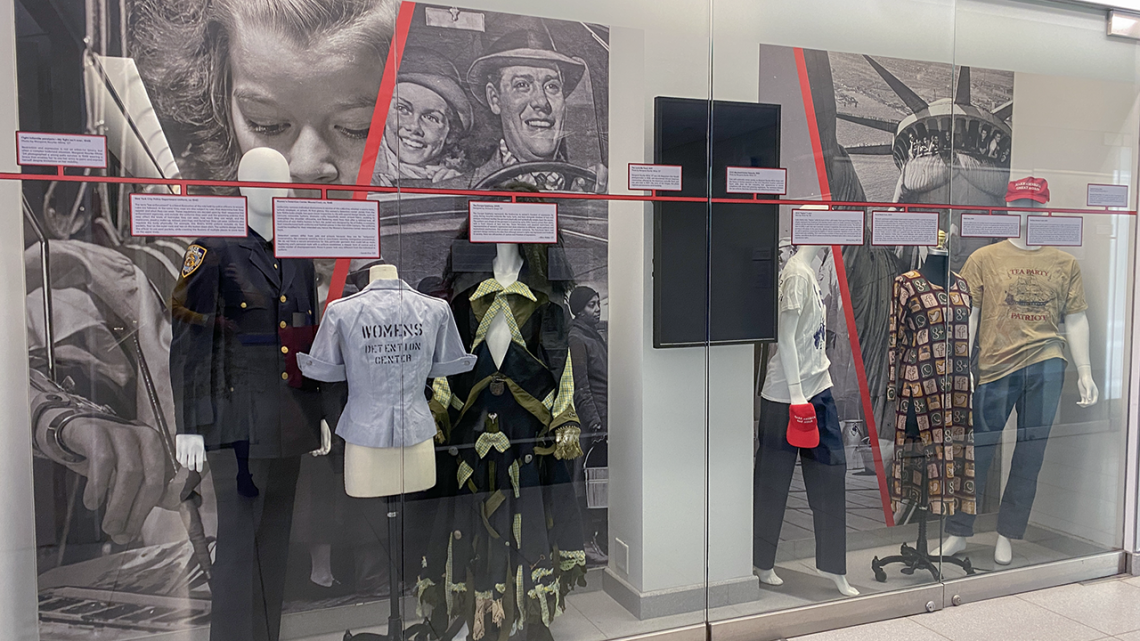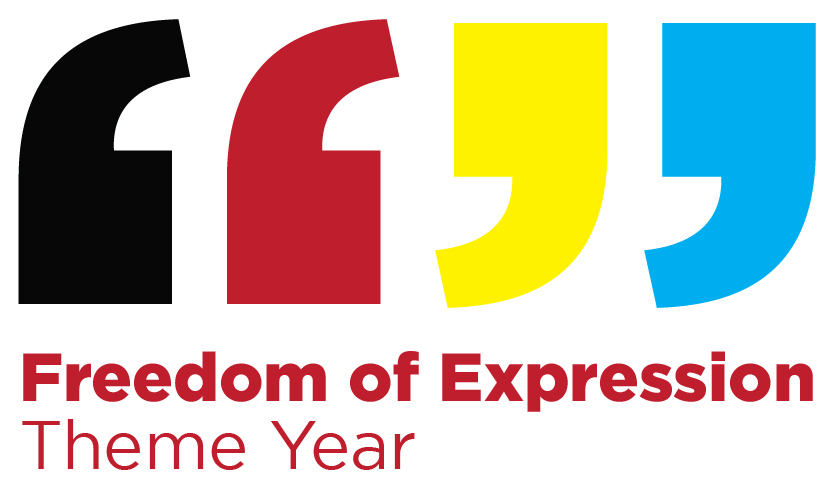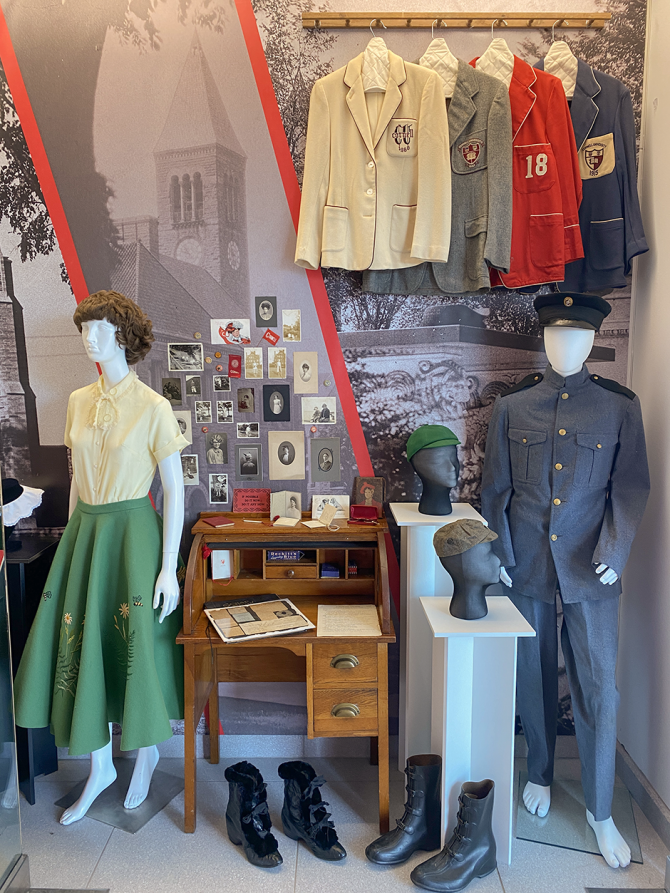
Pieces in the exhibit include a 1940’s NYPD uniform, a Women's Detention Center blouse from that same era and a 2005 wearable art piece that is a commentary on women’s repression, restraint and incarceration.
Exhibit explores freedom of expression through fashion
By Marisa LaFalce
A Cornell freshman beanie. An American Airlines flight attendant uniform. Two red MAGA hats with divergent meanings.
These are just a few of the items included in “Fashioning the Bounds of Free Speech,” an exhibit examining fashion as a form of symbolic speech and expressive conduct that has shaped the limits and possibilities of freedom of expression in the United States.
The exhibit, part of Cornell’s Freedom of Expression theme year, will be on display in the Human Ecology Building and the Herbert F. Johnson Museum of Art from Sept. 28 to Jan. 15, 2024. An opening reception, Oct. 5 from 4:30-5:30 p.m. in the College of Human Ecology Commons, will feature remarks by President Martha E. Pollack.
“Freedom of expression is fundamental to our mission of education and scholarly inquiry,” said Rachel Dunifon, the Rebecca Q. and James C. Morgan Dean of the College of Human Ecology (CHE). “This exhibit provides the opportunity to reflect on how our own expression has at times been liberated or limited through the clothing we wear and how our ability to express ourselves through fashion changes over time and place.”
The exhibit explores fashion’s role in pushing boundaries, making change and expressing various ideologies and identities – within the Cornell community and in society at large – using items from the Cornell Fashion + Textile Collection, the Division of Rare and Manuscript Collections, the Johnson Museum and outside collections. It is co-curated by Denise Green, associate professor of human centered design (CHE), and Alison Rittershaus, the Lynch Postdoctoral Associate in Curricular Engagement at the Johnson Museum.
The section on Cornell explores student dress codes and their inherent tensions and changes over time. For example, in the 1950s male students were mandated to study military science and were issued a Cornell cadet uniform, complete with custom buttons, which will be on display. Cornell’s history of student activism is also highlighted through a series of T-shirts, from protesting tuition hikes to supporting Chinese students in the aftermath of the bloodshed in Tiananmen Square.
In addition, the exhibit explores politics, legislation and labor disputes. The flight attendant and baggage handler uniforms on display are from the 1970s and early 1980s, when multiple lawsuits were brought against American Airlines. Employees fought weight, age, gender and racial discrimination to protect the right to appear and dress in ways that aligned with their identities.
A contemporary sweatshirt supports the CROWN Act, legislation that seeks to end racial discrimination in the workplace based on a person’s hair texture or style.
Also on display are shoes by Cheval, formerly known by her birth name Hayley Paige Gutman ’07. At age 25 and without legal guidance, she had signed a contract for her dream job, appearing on the show “Say Yes to the Dress” as a bridal designer. When that contract ended, she could no longer use her name and could not work in the bridal industry because of a non-compete clause.
Cheval shared her story Sept. 26 in a panel discussion, “Motions and Emotions: Legal Pitfalls and Protections for Fashion Professionals,” with Laurie Berke-Weiss, ILR ’71, and Mary Kate Brennan, both attorneys and members of the New York City Bar Association’s fashion law committee.
In addition to curating the exhibit, Green and Rittershaus are co-teaching Fashion and Freedom of Expression, a Learning Where You Live course. The course has attracted students from across the university, and they will contribute to the exhibit as part of their class research.
“We are thrilled that the topic of fashion and freedom of expression has been a vehicle to connect students with alumni from across the eras,” Green said. “These modes of exploration and connection advance learning in powerful ways: Students think more expansively about what constitutes expression in dress, appearance and the fashion industry, and more critically about how, why and when creative expression might be repressed and restricted.”
Marisa LaFalce is a communications assistant in the College of Human Ecology.
Media Contact
Abby Kozlowski
Get Cornell news delivered right to your inbox.
Subscribe


